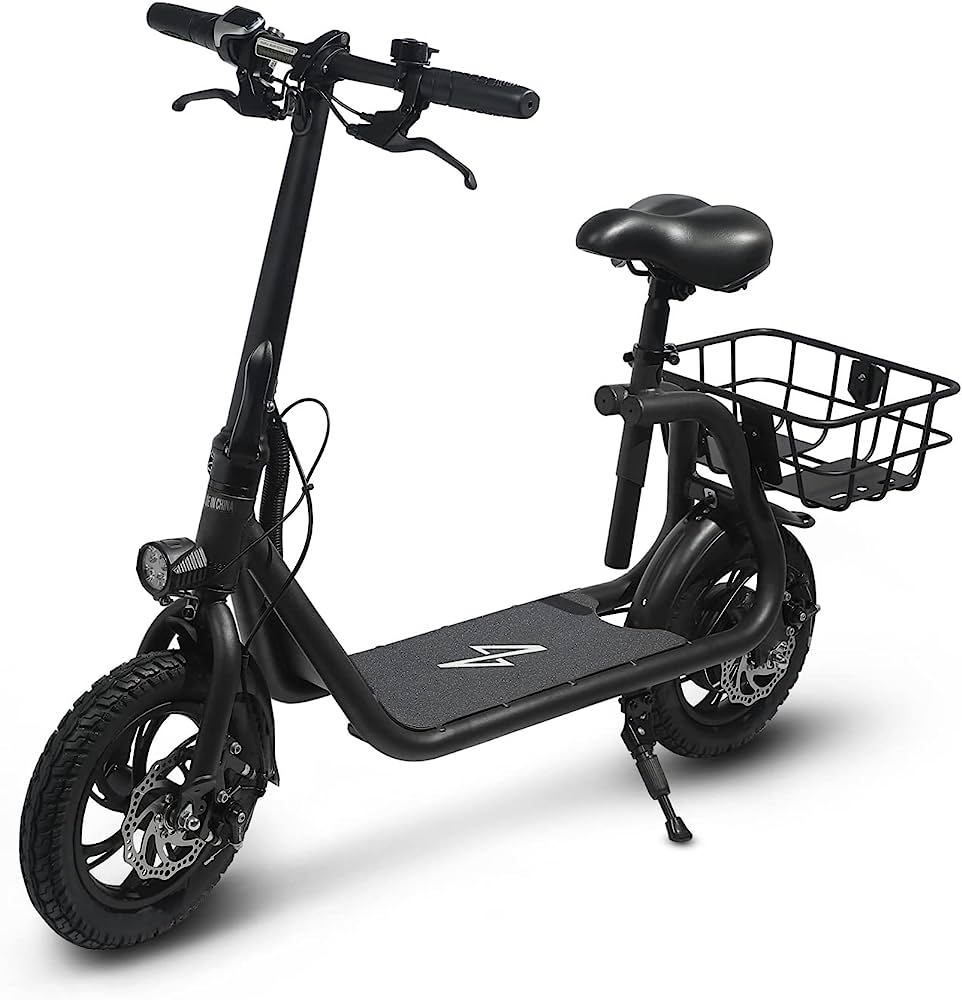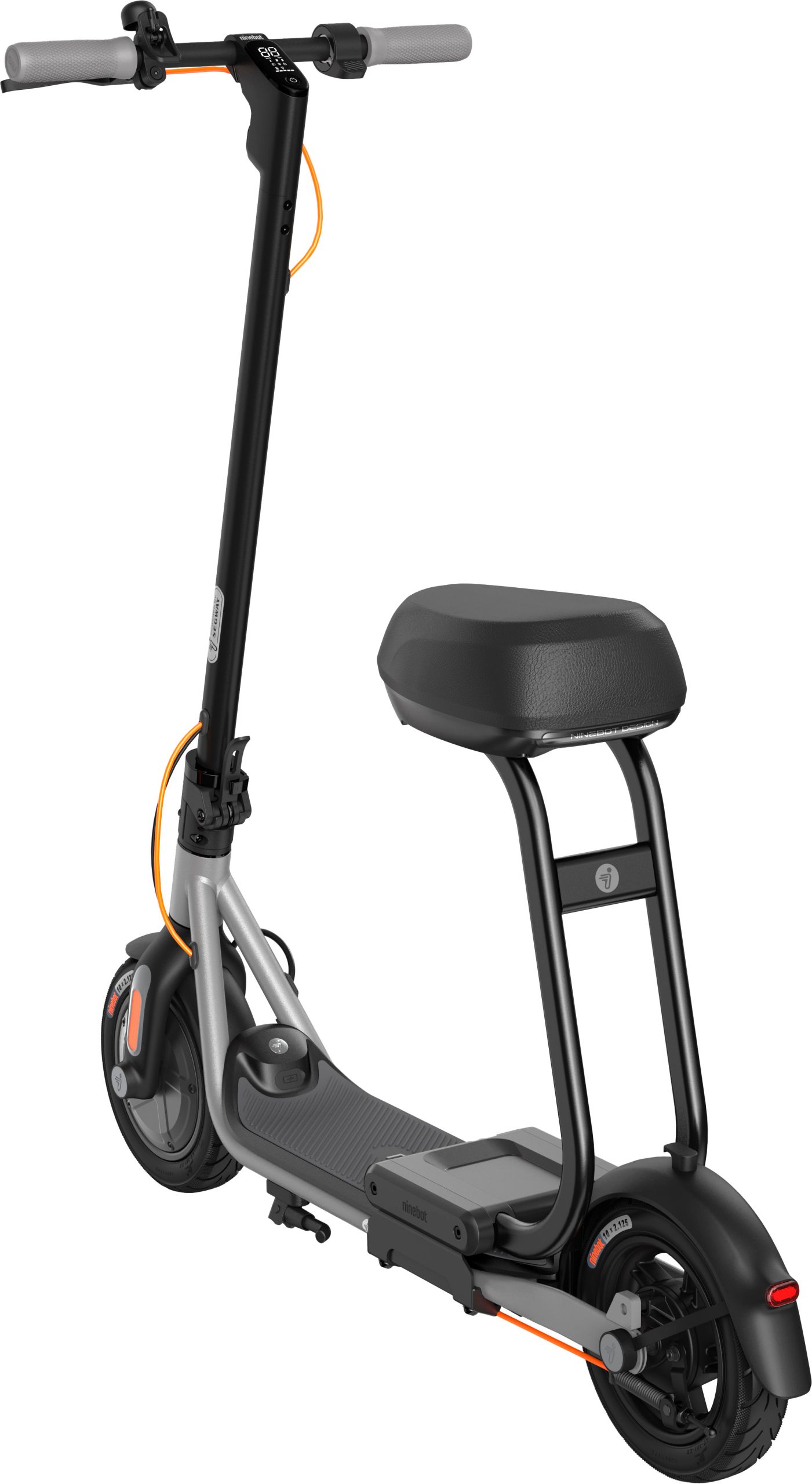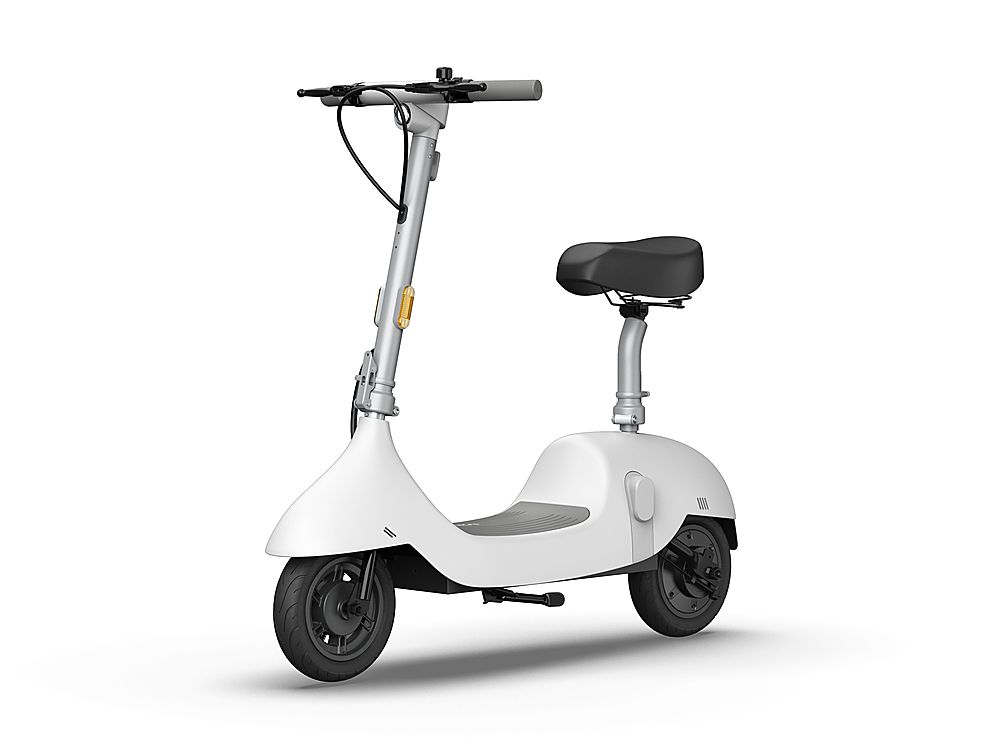Electric scooters with seats have rapidly gained popularity as a sustainable and convenient mode of transportation. As technology continues to evolve, there are emerging trends and developments that could revolutionize the design and use of electric scooters. Additionally, electric scooters have the potential to play a significant role in sustainable and equitable urban development. Here are some of the future possibilities and directions for electric scooters with seats:

Emerging trends and developments in electric scooter design and technology:
There are several emerging trends and developments in electric scooter design and technology that could shape the future of these vehicles. One of the most significant developments is the integration of artificial intelligence (AI) and machine learning (ML) technologies. This could enable electric scooters to adapt to changing traffic patterns and road conditions, making them safer and more efficient.
Another trend is the development of electric scooters with longer battery life and faster charging times. This could make electric scooters a more practical and convenient mode of transportation for longer distances and reduce the need for frequent charging.
Innovative applications and uses of electric scooters:
Electric scooters have the potential to be used for more than just personal transportation. They could also be used for delivery services, such as food or package delivery, or for other commercial purposes. Additionally, electric scooters could be used in innovative ways to address urban challenges, such as providing transportation for underserved communities or as part of disaster response efforts.
Future challenges and opportunities for electric scooter adoption and use:
One of the challenges for electric scooter adoption and use is the need for better infrastructure and regulations. This includes developing dedicated bike lanes, charging infrastructure, and clear rules and regulations for electric scooter use. Additionally, concerns about safety and liability need to be addressed to ensure the safe and responsible use of electric scooters.
However, there are also significant opportunities for electric scooter adoption and use. These include reducing traffic congestion, decreasing carbon emissions, and increasing accessibility to transportation for underserved communities. Additionally, electric scooters can provide a more affordable and convenient mode of transportation for short trips or as a last-mile solution.
Potential for electric scooters to revolutionize transportation and mobility in the future:
Electric scooters have the potential to revolutionize transportation and mobility in the future by providing a sustainable and convenient alternative to traditional modes of transportation. As cities become increasingly congested, electric scooters can provide a more efficient and practical mode of transportation for short trips or as a last-mile solution.
In addition to personal use, electric scooters could also be used for commercial purposes, such as delivery services, or in public transportation systems. Electric scooters could be integrated into existing transportation systems, such as trains and buses, to provide a more seamless and convenient transportation experience.
Role of electric scooters in the broader context of sustainable and equitable urban development:
Electric scooters have an important role to play in sustainable and equitable urban development. By providing a sustainable and convenient mode of transportation, electric scooters can reduce the reliance on cars and other individual modes of transportation that contribute to traffic congestion and air pollution. Additionally, electric scooters can improve transportation access and equity, particularly for underserved communities that may have limited access to public transportation.
Electric scooters can also help promote sustainable urban development by reducing the need for dedicated parking spaces and encouraging the use of public transportation. This can help create more livable and walkable cities that prioritize the needs of people over cars.

